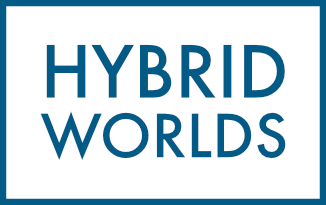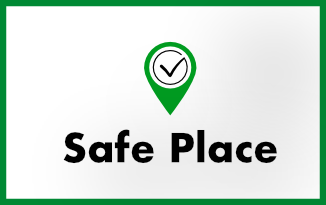Hybrid Sustainable Worlds

In this period of uncertainty due to the Covid-19 pandemic, hybrid environments allow to blend the physical and the virtual presence. Hybrid environments allow to smoothly manage those moments when our social needs must give way to the security demands of social distancing. By doing this, we can keep our social, professional, and cultural connections permanently active. In addition, they offer a brand new way to exhibit products, both remotely and in-person, thereby developing new marketing models.
The Hybrid Worlds project aims to support everyday scenarios and practices through the use of digital, virtual, and interactive hybrid systems. Hybrid systems exploit physical objects and interactive visualization platforms to distribute communication, work, retail, education, and cultural experiences to multiple users, bypassing time and physical barriers.
More specifically, the Hybrid Worlds project intends to employ these technologies in four application contexts, particularly affected by the current situation: Work and Construction, Marketing and Retail, Access to Culture, Education, and Training. To this end, the project involves a multidisciplinary consortium including interdisciplinary research teams and several companies.
In this framework, the HIT Centre will focus on the marketing and retail scenarios, yet in synergy with the various application contexts of the project.
In particular, in the first phase HIT Centre will inform the design of the real-virtual hybridization of marketing and e-commerce systems. For this purpose, stakeholders from different sectors (e.g., trade fairs, advertising, e-commerce, and HCI experts) will be involved in collaborative design sessions. In the second phase, hybrid systems will be realized and implemented in different real-life scenarios to create interactive products exhibition.
Finally, highly accessible interfaces for hybrid systems and customer experiences will be evaluated, also considering aspects related to the pleasantness of the system and aesthetics of the products. Particular attention will be paid to the possibilities of users with light physical and cognitive disabilities who will be put in a position to be able to use the Hybrid World systems.
Extend your reality with Hybrid Worlds!
Detailed project information
HIT Members and Staff: Prof. Luciano Gamberini, Giulia Benvegnù, Alice Bettelli
Call (part) identifier: POR FESR
Total Project Funding: 3 000 000€
Partners: Human Inspired Technology Research Centre (HIT - University of Padua), Department of Civil, Environmental and Architectural Engineering Green Building (University of Padua), Department of Cultural Heritage: Archaeology and History of Art, Cinema and Music (University of Padua), University of Verona, Ca' Foscari University of Venice, IUAV University of Venice, Lighting, Consorzio ICT4SSL, VCH, Euteknoss, Thron, Corvallis, Fenice, Coop Sociale
Official Website: Hybrid Worlds
Safe Place

The Safeplace project was created to increase the safety of individuals in their daily spaces in emergency health conditions.
In this case, Internet of Things (IoT) technologies represent the best solution. Infact, IoT tools facilitate monitoring of shared spaces and collect informations about the presence of people without being perceived as invasive for privacy.
Safeplace has two main objectives: to create and develop an integrated IoT system that ensures the security of shared living spaces and to create a mobile application to support people in forced isolation.
Both will be characterized by a human-centric design approach of technologies.
The Iot system will include a heterogeneous network of sensors that, based on machine learning algorithms for detection and classification, will be able to detect different data from the environments in which they will be installed. These technologies will provide information on the presence of people, potential gatherings and the use of personal protective equipment.
In addition, the system will allow, in absence of users, to decontaminate environments to eliminate potential pathogens through bipolar ions or UV light, filtration and air exchange.
Furthermore, the Safe Talk application aims to create accessible and easily usable software to allow people in isolation to be able to maintain their important relationships.
Detailed project information
Funding body: POR-FESR
Funding period: 2020-2022
Scientific coordinator: prof. Luciano Gamberini
Project Start Date: 10th September 2020
Project end Date: 31th December 2022
Total Project Funding: € 2.999.480,00
Partners:ICT4SSL, NEGROPONTELAB S.R.L., ATENA LUX S.R.L., GIORDANO CONTROLS S.P.A., ENGI S.R.L., STYLNOVE CERAMICHE S.R.L., JONIX S.R.L., GIZERO ENERGIE SRL, EDALAB SRL, ALFA WATER SRL, I.R.S. S.R.L., UNIVERSITÀ DEGLI STUDI CA' FOSCARI DI VENEZIA, NECTO GROUP SRL UNIVERSITÀ DEGLI STUDI DI VERONA, T2I - TRASFERIMENTO TECNOLOGICO E INNOVAZIONE S.C. A R.L., RAWFISH S.R.L., CO.E.M. S.R.L., VIDEOTEC SPA, BROFER S.R.L., HIKARI S.R.L. , L'INCONTRO COOPERATIVA SOCIALE, DIGITAL GREEN JOBS - IMPRESA SOCIALE S.R.L. IN SIGLA "DIGITAL GREEN IMPRESA SOCIALE S.R.L.", ELESI LUCE S.R.L., B F T S.P.A.